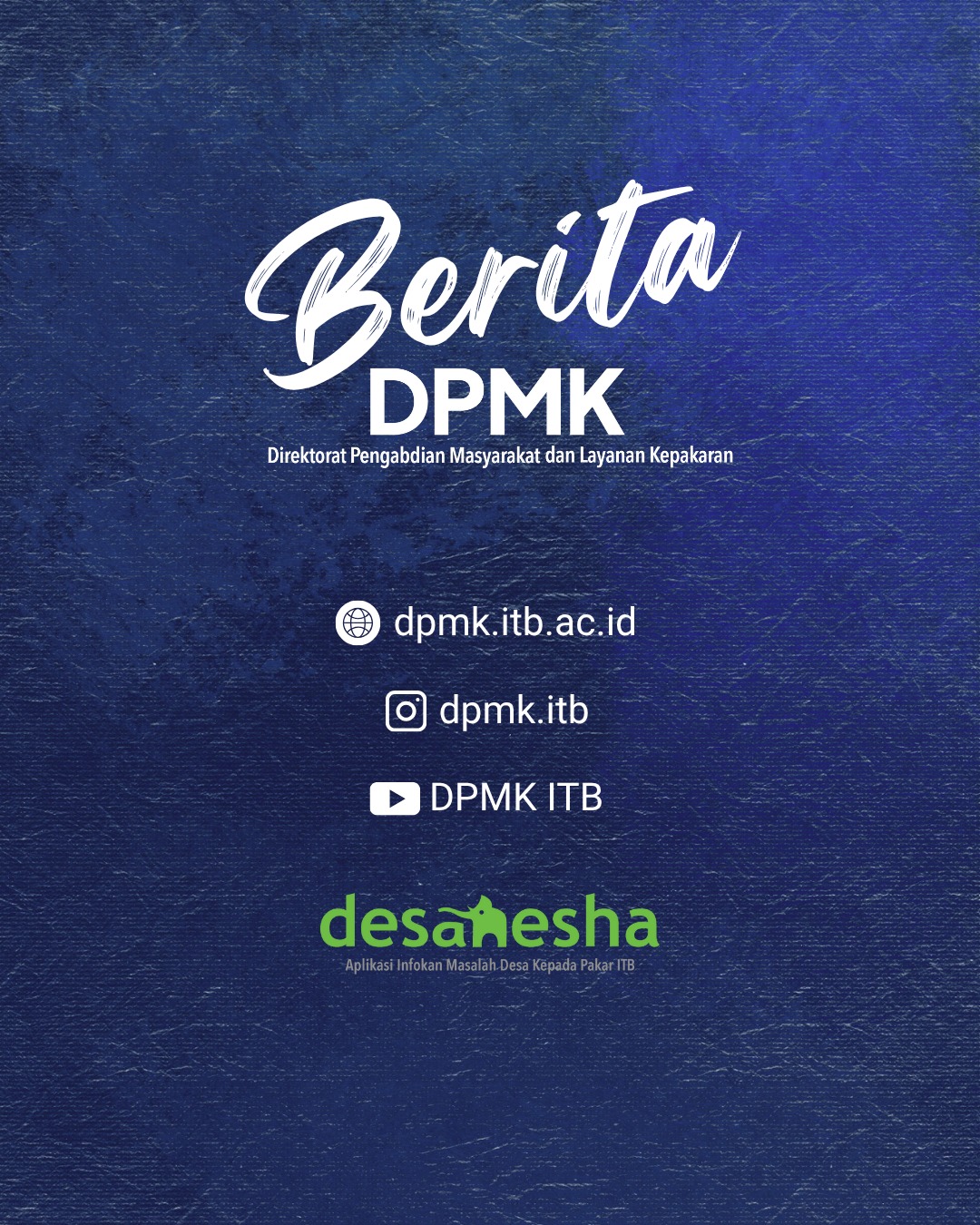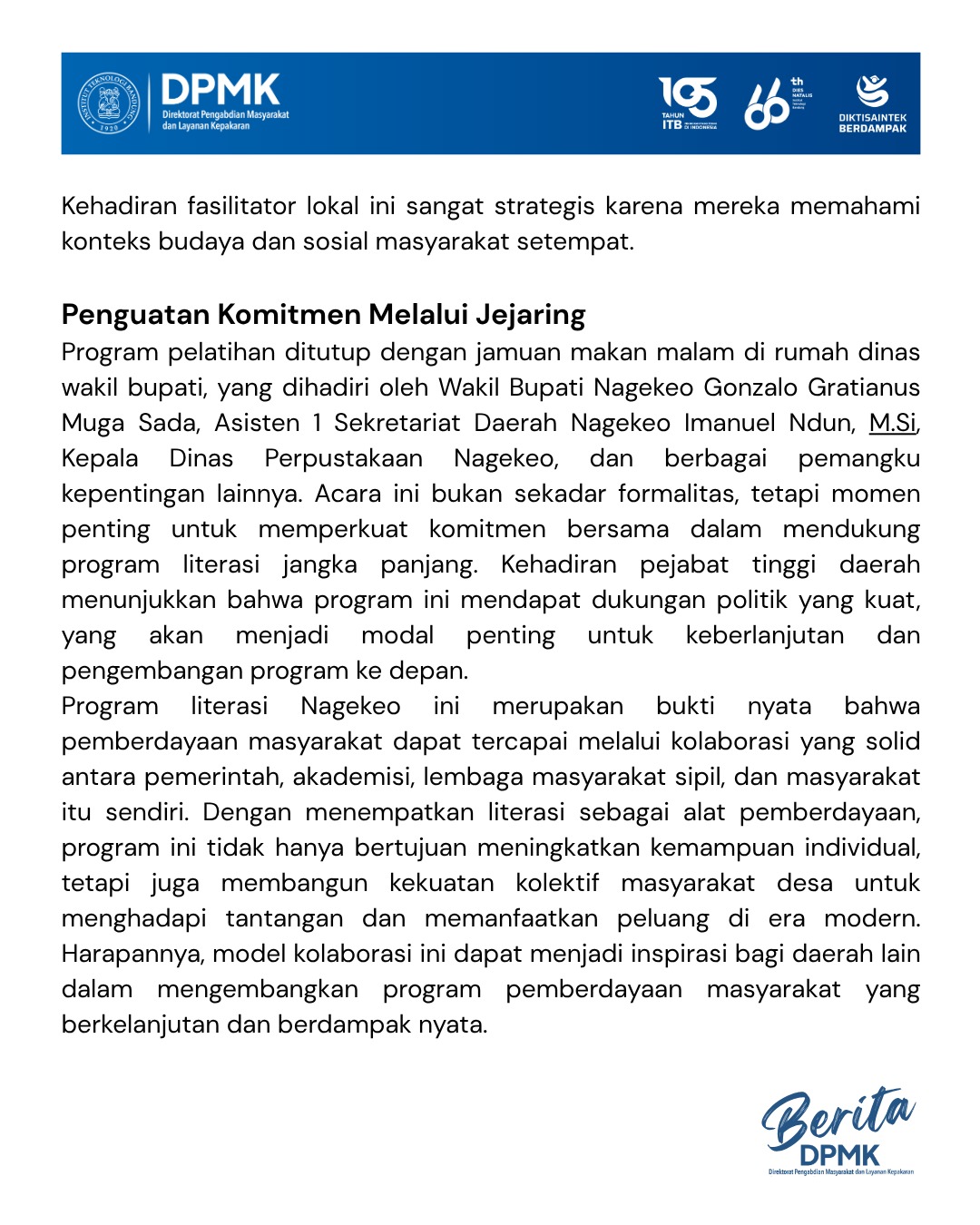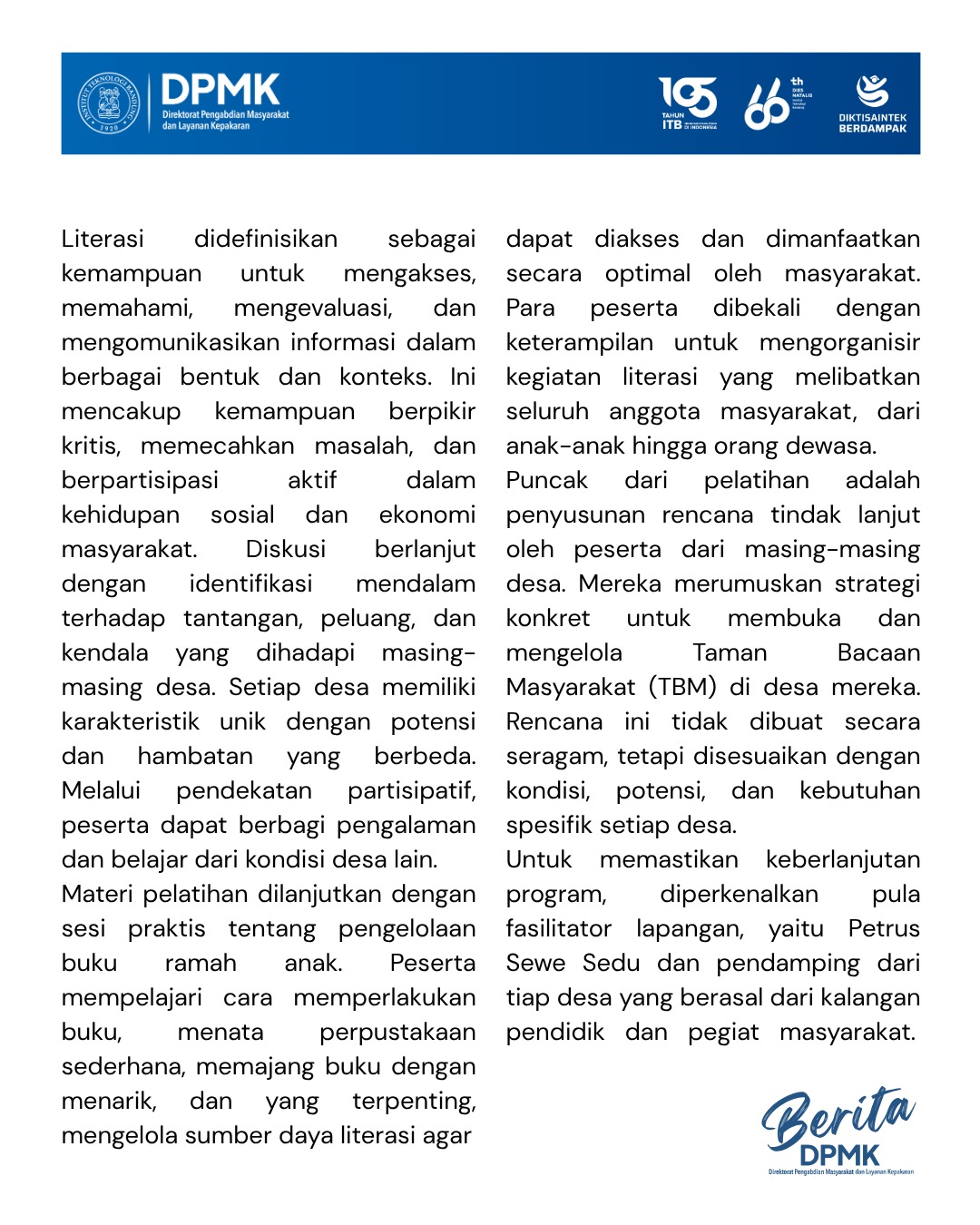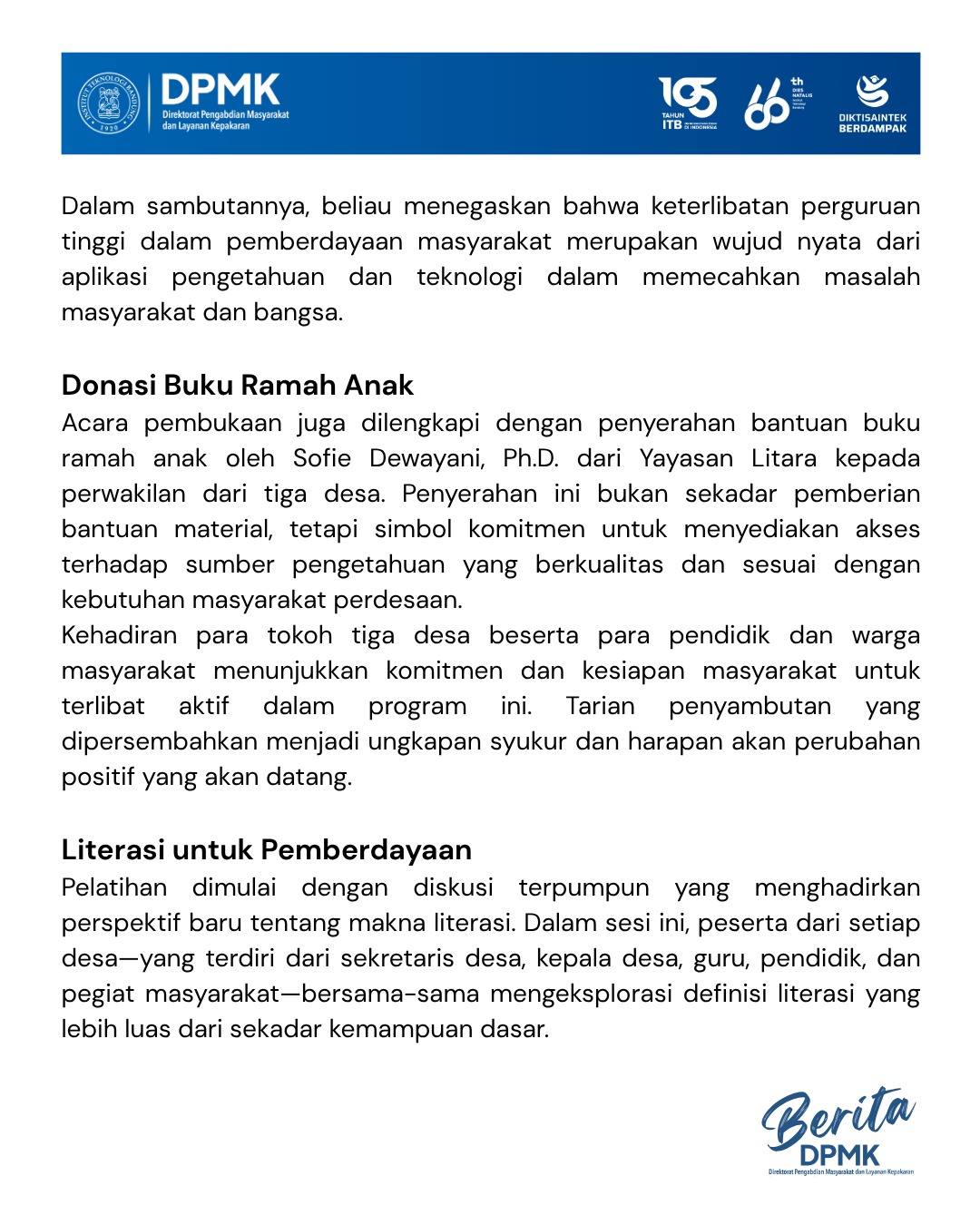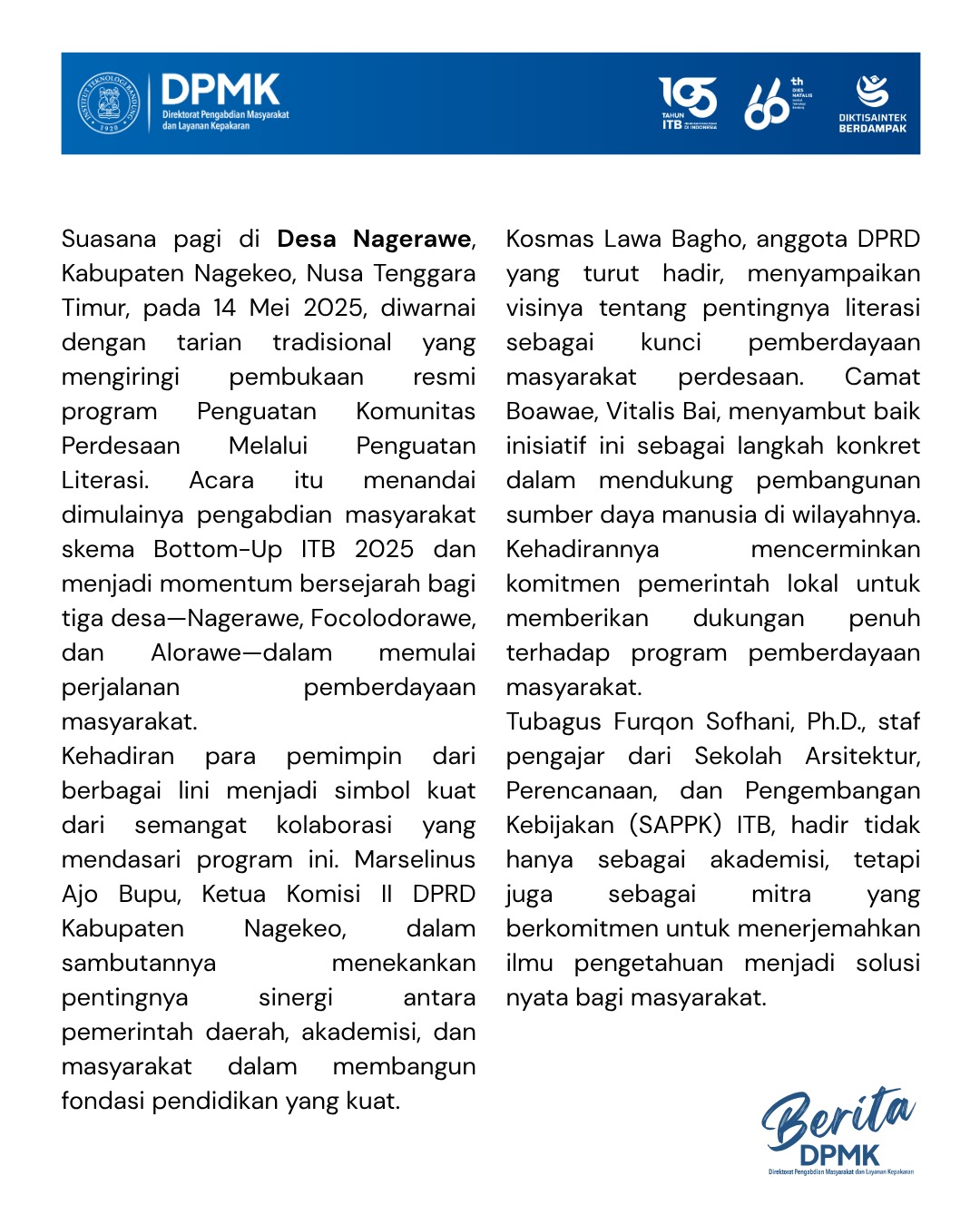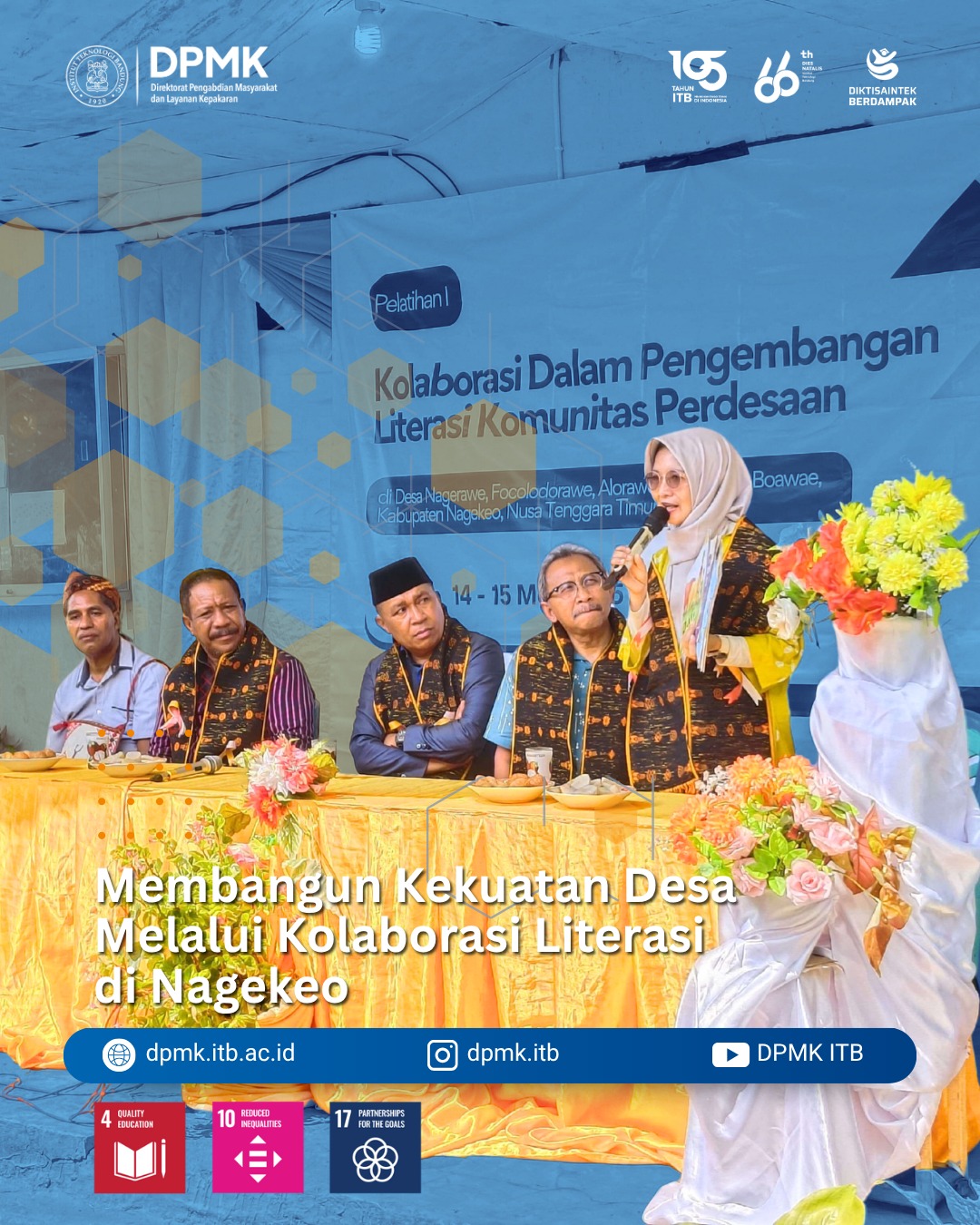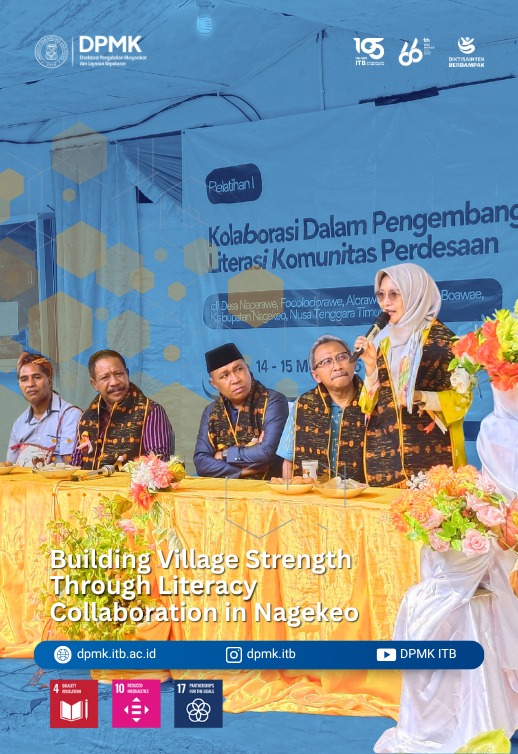

Efforts to Empower Rural Communities in Developing the Ability to Access, Understand, and Communicate Information
The morning atmosphere in Nagerawe Village, Nagekeo Regency, East Nusa Tenggara, on May 14, 2025, was colored by traditional dances accompanying the official opening of the Rural Community Strengthening Program Through Literacy Empowerment. The event marked the beginning of the Bottom-Up ITB 2025 community service scheme and became a historic moment for the three villages—Nagerawe, Focolodorawe, and Alorawe—in starting their journey of community empowerment.
The presence of leaders from various sectors became a strong symbol of the collaborative spirit underlying this program. Marselinus Ajo Bupu, Chairman of Commission II of the Nagekeo Regency DPRD, in his speech emphasized the importance of synergy between local government, academics, and the community in building a strong educational foundation.
Kosmas Lawa Bagho, a member of the local parliament who was also present, shared his vision on the importance of literacy as the key to empowering rural communities. The Boawae Subdistrict Head, Vitalis Bai, welcomed this initiative as a concrete step in supporting human resource development in his area. His presence reflects the local government's commitment to fully supporting community empowerment programs.
Tubagus Furqon Sofhani, Ph.D., a lecturer from the School of Architecture, Planning, and Policy Development (SAPPK) ITB, attended not only as an academic but also as a committed partner in translating knowledge into real solutions for the community. In his speech, he emphasized that the involvement of higher education institutions in community empowerment is a tangible manifestation of the application of knowledge and technology in solving societal and national problems.
Donation of Child-Friendly Books
The opening ceremony was also complemented by the handover of child-friendly books by Sofie Dewayani, Ph.D. from Yayasan Litara to representatives from three villages. This handover is not just a provision of material assistance, but a symbol of commitment to providing access to quality knowledge resources that meet the needs of rural communities.
The presence of leaders from three villages along with educators and community members demonstrates the community's commitment and readiness to actively participate in this program. The welcoming dance performed became an expression of gratitude and hope for the positive changes to come.
Literacy for Empowerment
The training began with a focused discussion that presented a new perspective on the meaning of literacy. In this session, participants from each village—comprising village secretaries, village heads, teachers, educators, and community activists—jointly explored a broader definition of literacy beyond mere basic skills.
Literacy is defined as the ability to access, understand, evaluate, and communicate information in various forms and contexts. This includes the ability to think critically, solve problems, and actively participate in the social and economic life of the community. The discussion continued with an in-depth identification of the challenges, opportunities, and constraints faced by each village. Each village has unique characteristics with different potentials and obstacles. Through a participatory approach, participants can share experiences and learn from the conditions of other villages.
The training material continued with a practical session on child-friendly book management. Participants learned how to handle books, organize a simple library, display books attractively, and most importantly, manage literacy resources so that they can be accessed and utilized optimally by the community. Participants were equipped with skills to organize literacy activities involving all community members, from children to adults.
The highlight of the training was the formulation of follow-up plans by participants from each village. They formulated concrete strategies to open and manage Community Reading Parks (TBM) in their villages. This plan is not made uniformly, but is tailored to the specific conditions, potential, and needs of each village.
To ensure the sustainability of the program, field facilitators were also introduced, namely Petrus Sewe Sedu and companions from each village who come from the ranks of educators and community activists. The presence of these local facilitators is very strategic because they understand the cultural and social context of the local community.
Strengthening Commitment Through Networking
The training program concluded with a dinner at the vice regent's official residence, attended by the Vice Regent of Nagekeo Gonzalo Gratianus Muga Sada, Assistant 1 of the Nagekeo Regional Secretariat Imanuel Ndun, M.Si, the Head of the Nagekeo Library Service, and various other stakeholders. This event is not just a formality, but an important moment to strengthen the collective commitment to supporting the long-term literacy program. The presence of high-ranking regional officials indicates that this program has strong political support, which will be an important asset for the sustainability and development of the program in the future.
The Nagekeo literacy program is concrete evidence that community empowerment can be achieved through solid collaboration between the government, academics, civil society organizations, and the community itself. By placing literacy as a tool for empowerment, this program aims not only to enhance individual capabilities but also to build the collective strength of village communities to face challenges and seize opportunities in the modern era. The hope is that this collaboration model can serve as an inspiration for other regions in developing sustainable and impactful community empowerment programs.
Instagram
#NagekeoPromotesLiteracy #QualityEducation #SDG4 #ReducingInequality #SDG10 #SDGPartnerships #SDG17 #LiteracyForAll #3TDevelopment #Nagekeo #NTT #LiteracyMovement #CommunityServiceITB #LitaraFoundation #ReadingWritingArithmetic #BuildingVillages #AdvancedIndonesia
